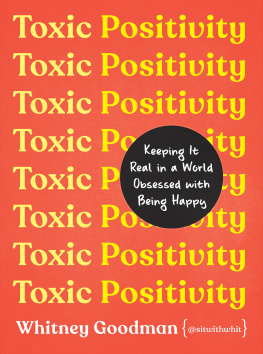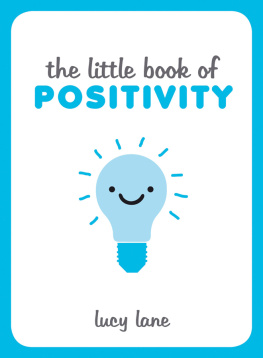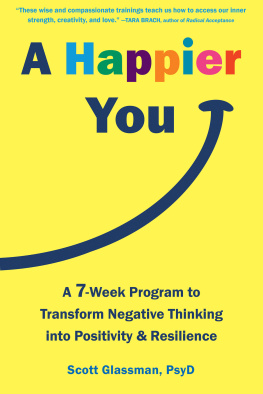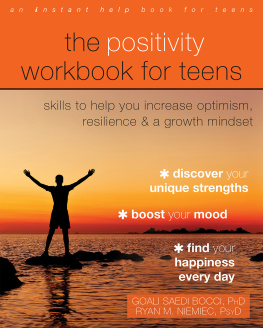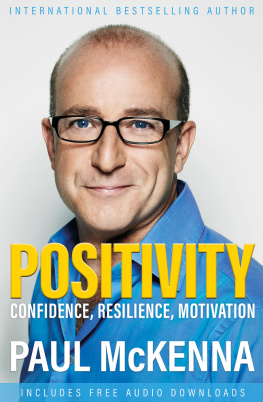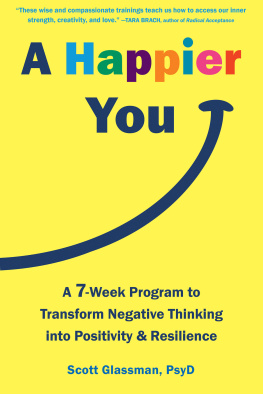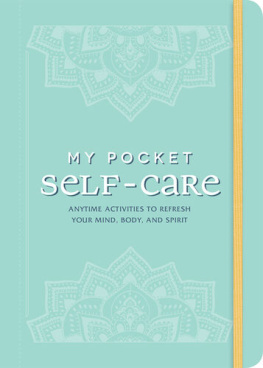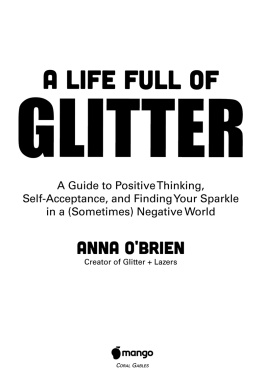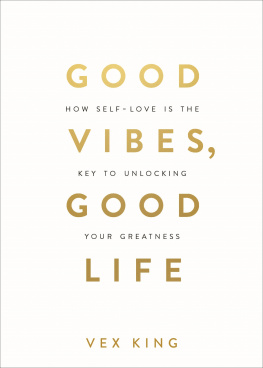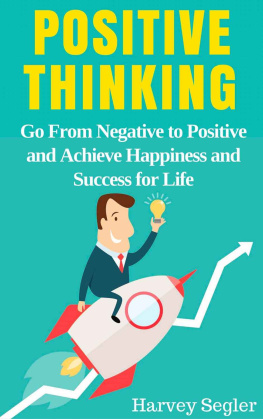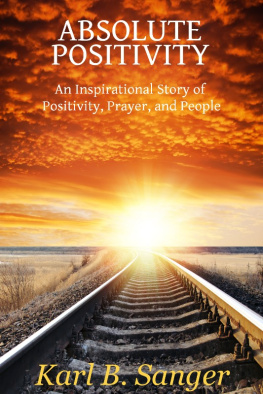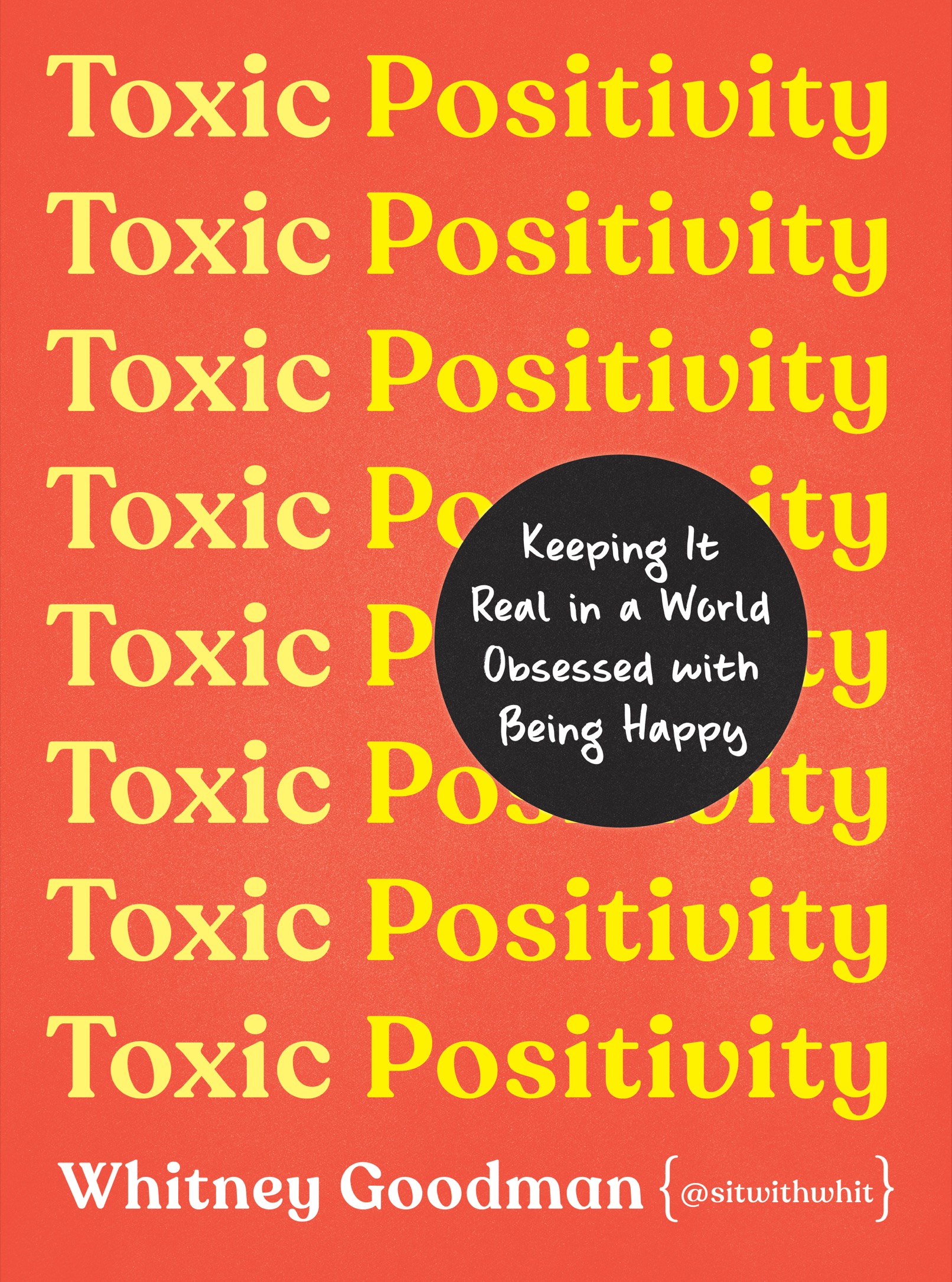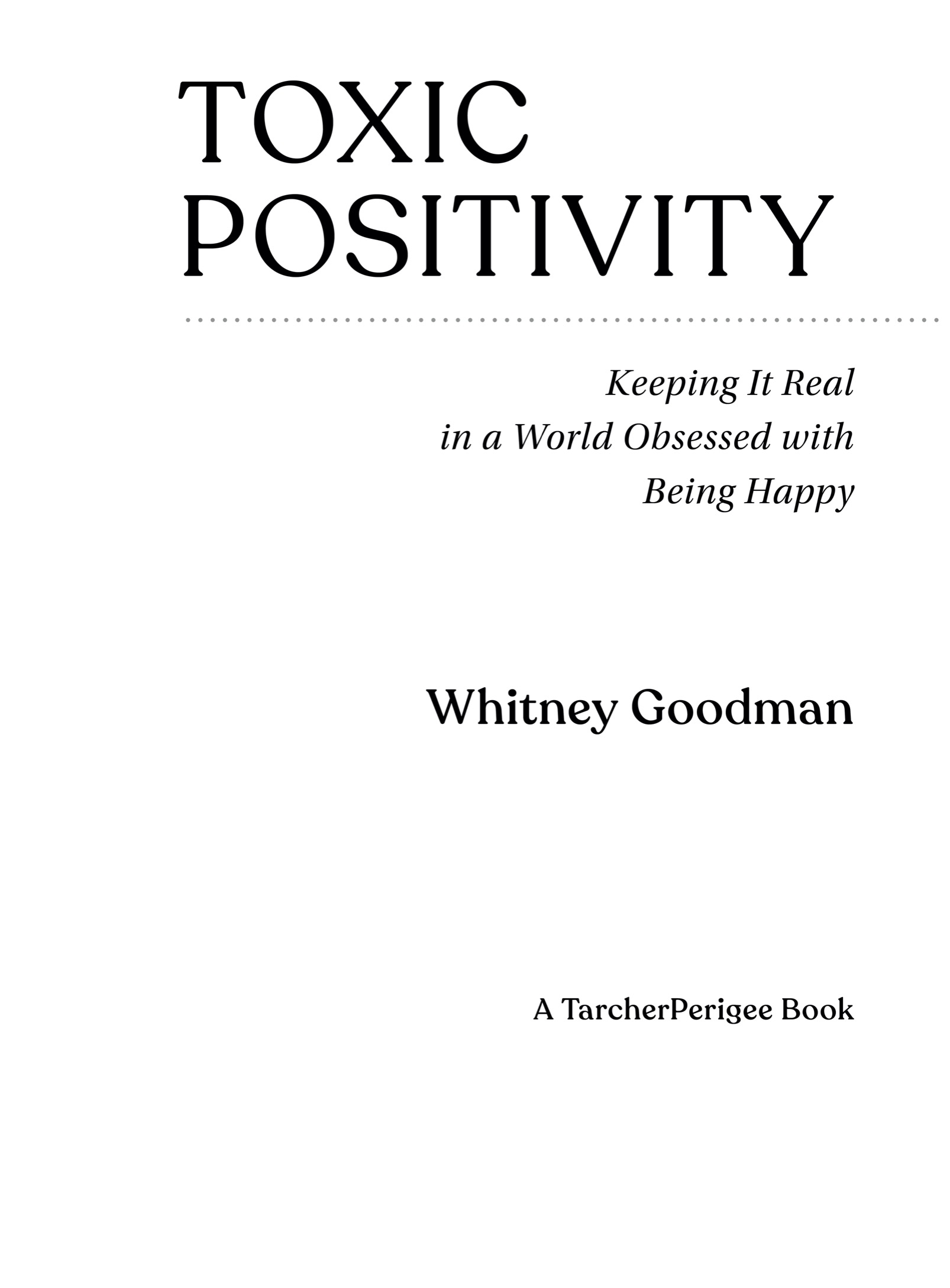Praise for Toxic Positivity
Ill be forever changed by Toxic Positivitybefore offering words of validation, I will choose what I say wisely. Whitney Goodmans book unlocks the difference between being helpful and harmful. This trailblazing book will help you transform your perspective about positivity.
Nedra Glover Tawwab, bestselling author of Set Boundaries, Find Peace
Sorely needed... Whitney Goodman elegantly weaves together her personal and clinical experience, academic research, and practical advice to offer us a refreshing antidote to the seemingly innocuous but ultimately harmful message of good vibes only.
Iris McAlpin, trauma professional
Whitney Goodmans Toxic Positivity is a much-needed breath of fresh air in the self-help space. Its the validation weve all been needing in order to fully understand the normal challenges that accompany our lives.
Todd Baratz, LMHC, psychotherapist
Living an authentic life means facing hard times and growing through them, not pretending things are perfect when theyre not. This book provides a much-needed road map for being honest with ourselves and others in order to be truly present in our own lives and grow as a whole person.
Scott Barry Kaufman, PhD, host of The Psychology Podcast and author of Transcend
Finally a book that explains exactly why positivity at all costs backfires, and teaches us how to process our pain instead of pretending it doesnt exist. Toxic Positivity is the antidote to superficial pop-psychology inspo, illustrating the limits of positive thoughts and gratitude, encouraging us to embrace lifes ups and downs, and giving us more realistic and helpful ways to implement positivity. Funny isnt, it? Stop chasing happiness and you may end up a little... happier.
Caroline Dooner, author of Tired as F*ck
If youve ever felt like something is wrong with you because youre having a hard time and cant seem to just get over it, this book will help you understand why. Moreover, Toxic Positivity teaches you what to do when witnessing the struggles of othersit will help you to be a better friend, parent, colleague, or partner when someone you love is having a difficult time. This book is the counterbalance to a world that preaches look on the bright side whenever life gets tough.
Elizabeth Earnshaw, LMFT, relationship expert and author of I Want This to Work

TarcherPerigee
an imprint of Penguin Random House LLC
penguinrandomhouse.com
Copyright 2022 Whitney Goodman
Penguin supports copyright. Copyright fuels creativity, encourages diverse voices, promotes free speech, and creates a vibrant culture. Thank you for buying an authorized edition of this book and for complying with copyright laws by not reproducing, scanning, or distributing any part of it in any form without permission. You are supporting writers and allowing Penguin to continue to publish books for every reader.
TarcherPerigee with tp colophon is a registered trademark of Penguin Random House LLC
Hardcover ISBN: 9780593418277
Ebook ISBN: 9780593418284
Cover design: Jess Morphew
Book design by Tiffany Estreicher, adapted for ebook by Estelle Malmed
Neither the publisher nor the author is engaged in rendering professional advice or services to the individual reader. The ideas, procedures, and suggestions contained in this book are not intended as a substitute for consulting with your physician. All matters regarding your health require medical supervision. Neither the author nor the publisher shall be liable or responsible for any loss or damage allegedly arising from any information or suggestion in this book.
pid_prh_6.0_139089994_c0_r0
For my husband.
In good times and bad times, I choose you.
Contents
Introduction
You Deserve More Than Just Good Vibes
I would bet there are three potential reasons why you picked up this book:
Youve been impacted by toxic positivity and are sick of it.
You dont know what toxic positivity is, but youre intrigued.
You have no idea how positivity could possibly be toxic, and youre determined to find out what absolute blasphemy Im spewing in this book.
No matter what your reason is, Im really glad youre here.
Like many aspiring therapists, I got into the field for reasons I didnt fully understand at the time. I knew I liked helping people, and I was obsessed with learning about their stories. But I would later discover (through the help of my therapist) that I actually wanted to get into the profession because I thought if I learned everything about relationships and the human psyche, I could fix everyone I loved and never feel pain again. Fellow therapists and future therapists, I know you get me here.
So I entered the field wide-eyed and delusional. I was closed off and hardened. I wanted my clients to be vulnerable without having to be so myself. I thought I would fix people, but no one needed fixing; they just needed to be heard and supported. I thought I would be the all-knowing speaker, but Im the listener. I thought I would understand myself and the world, but now I have more questions. I thought Id change everyone around me; instead, I learned the only person I could change was myself. My motivations for entering the field may have been a little off, but wow, Im glad Im here.
I love being a therapist, and Ive always felt a little rough around the edges among my colleagues. Ive never been a meditating, tea-drinking, yoga type of therapist. My voice is too loud, I dont wear cardigans, and I hate all the inspirational quotes on the walls. I tried to make myself softer. I tried to get into the affirmations and all those interventions that tell you to get in touch with your inner child and show it love. I couldnt do it. Thats how Ive felt reading most of the self-help and psychology books out there. They all feel really soft and gentle. I want someone to tell it like it is and to be honest. I had a bit of an identity crisis as a new therapist, and it wasnt until I started posting my thoughts on Instagram as @sitwithwhit that I realized there was value in how I wanted to show up.
On February 1, 2019, I was scrolling on Pinterest and saw so many self-help and inspirational quotes being shared thousands of times. The bright colors and whimsical fonts made me irritated. I felt dismissed and concerned for anyone who might see these while in a fragile state. I started a Pinterest board of happiness and inspirational quotes that bothered me, and have continued collecting them over the years. (That board actually served as the inspiration for the cover of this book.) That same day, I shared one of my first charts on Instagram, listing some of those quotes from Pinterest, referring to them as toxic positivity, and providing some alternative statements that I thought offered more validation and hope. This was my first viral post, and my tiny following multiplied in the wake of sharing this chart. I was shocked by how many people agreed with my perspective and how the phrase toxic positivity resonated. It was also the first time I dealt with significant criticism and pushback online from people who disagreed with my perspective. I have continued creating toxic positivity posts on grief, racism, and other important topics over the last several years, and they are some of my most popular and controversial posts to date. I knew I was on to something but never couldve imagined just how much this topic would resonate with others.

